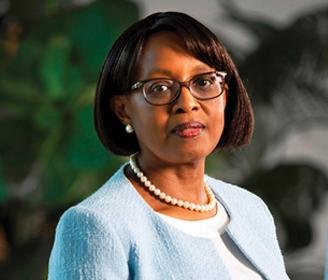“With the omicron variant now detected in several regions of the world, putting in place travel bans that target Africa attacks global solidarity”
BRAZZAVILLE, REPUBLIC OF THE CONGO — The World Health Organization (WHO) is discouraging flight bans on southern African nations due to concerns over the new omicron COVID-19 variant.
Over the weekend, The Bahamas joined a growing number of countries to impose travel bans on certain southern African countries after the omicron variant was identified in that region.
However, in a recent statement, the WHO urged countries to follow science and the International Health Regulations (2005) in their approach to the newly emerging variant.
“Travel restrictions may play a role in slightly reducing the spread of COVID-19 but place a heavy burden on lives and livelihoods,” the statement read.

“If restrictions are implemented, they should not be unnecessarily invasive or intrusive, and should be scientifically-based, according to the International Health Regulations, which is a legally binding instrument of international law recognized by over 190 nations.”
Dr Matshidiso Moeti, WHO regional director for Africa, said: “With the omicron variant now detected in several regions of the world, putting in place travel bans that target Africa attacks global solidarity.
“COVID-19 constantly exploits our divisions. We will only get the better of the virus if we work together for solutions.”
While investigations continue into the omicron variant, the WHO recommends countries to take a risk-based and scientific approach and put in place measures that can limit its possible spread.
The organization noted that flight bans have been imposed on southern African countries, but “so far, only two have detected the new variant” whilst “countries in other regions have reported cases of omicron”.
The organization noted, “This week, nations will be joining a special session of the World Health Assembly, organized by WHO to discuss how to collectively prepare and respond better to pandemics, building on their commitments to the International Health Regulations.
“South Africa followed International Health Regulations and, as soon as its national laboratory identified the omicron variant, informed WHO of this on the 24 November.”
WHO stands with African countries which had the courage to boldly share life-saving public health information, helping protect the world against the spread of COVID-19.
– Dr Matshidiso Moeti
Moeti said: “The speed and transparency of the South African and Botswana governments in informing the world of the new variant is to be commended.
“WHO stands with African countries which had the courage to boldly share life-saving public health information, helping protect the world against the spread of COVID-19.
“On the eve of a special session on pandemic preparedness, I urge all countries to respect their legal obligations and implement scientifically-based public health actions.
“It is critical that countries which are open with their data are supported as this is the only way to ensure we receive important data in a timely manner.”
WHO is scaling up support to genomic sequencing in Africa, and also urged countries to take key steps to enhance efforts to track the omicron variant, including ensuring their PCR testing equipment can detect it, increasing their sampling and sequencing of COVID-19 test samples by at least double to 150 samples a week from the current average of 75 and reviewing past sequencing samples for potential signs of omicron.






